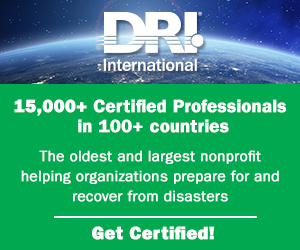Computer says no! NHS Glasgow computer outage
Plan B Consulting
OCTOBER 27, 2013
This week we have seen a textbook example of a business continuity issue making the mainstream news. NHS Greater Glasgow and Clyde had problems with its server which caused more than 700 patients’ appointments to be cancelled. With staff unable to access records and scans, treatments such as chemotherapy were called off. Staff were having to manually enter the records written over the days of the outage and tried their best to re-arrange appointments.



















Let's personalize your content